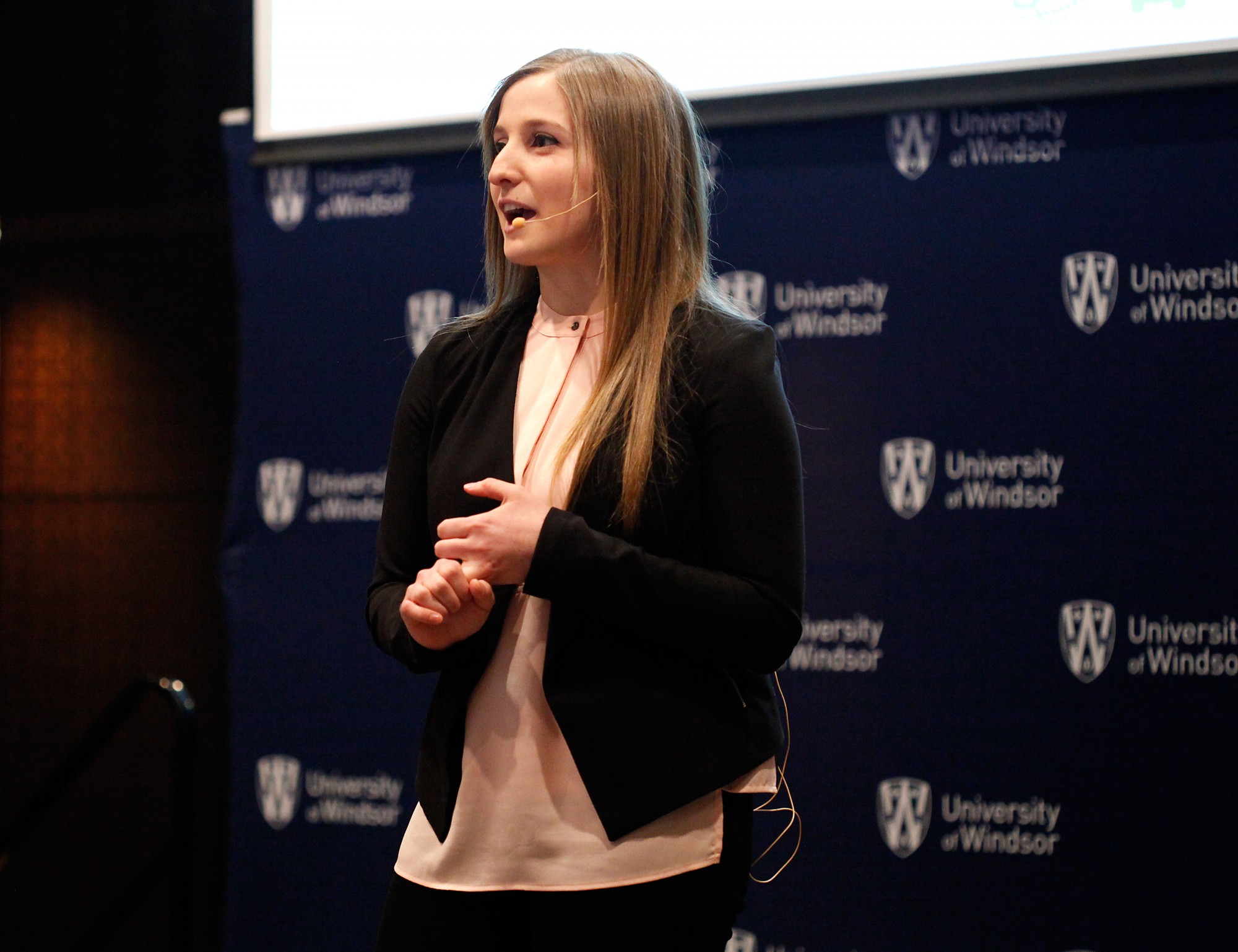
A UWindsor Engineering graduate student represented the University of Windsor at a provincial Three Minute Thesis competition.
Liza-Anastasia Di-Cecco, a master's student in Materials Engineering, presented her 3D printing research at the Ontario 3MT® competition final on April 19, 2018 at York University.
Di-Cecco had three minutes and a single presentation slide to deliver her presentation titled "Move over plastic, we're 3D printing titanium."
"In my research, I’m studying the material properties of pure titanium made through a specific 3D printing process using plasma fabrication," Di-Cecco said. "I’m concentrating on looking at their strength, hardness, and durability, while also looking at what’s happening at the microscopic level to characterise these parts."
Di-Cecco said 3D printing is expanding our ability to make parts and more complex items such as custom prosthetics and orthotics and lighter and more fuel efficient cars.
"Even advanced rocket fuel nozzles that might someday get us to Mars; The possibilities of this research are endless," she added.
Three UWindsor Engineering graduate students made it to the final six in the University of Windsor's Three Minute Thesis competition where Di-Cecco took home a second-place prize of $500.
— Published on Jan 7th, 2021
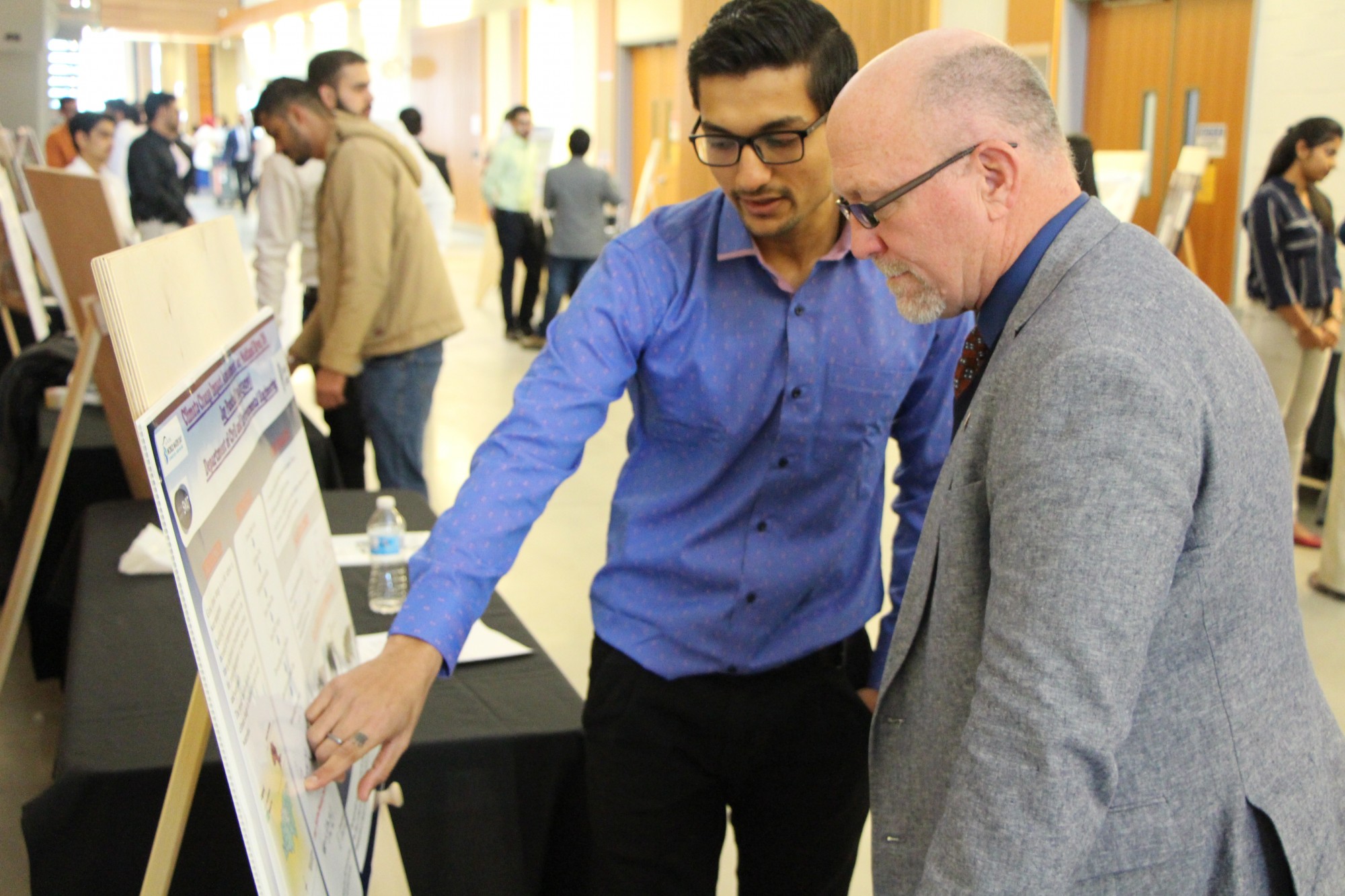
Swollen by rain and melting snow, the Thames River burst its banks in February, inundating southwestern Ontario with its worst floods in 40 years.
The effects of such a catastrophe can be mitigated, says Monika Saha, a master’s candidate in civil engineering, and one of more than 20 students who presented projects in the Centre for Engineering Innovation on Thursday, March 22, in celebration of World Water Day.
Saha is working to create models of the lower Thames River that can predict floods in Chatham-Kent.
“We’ll basically capture the flow. With our hydrologic and hydraulic models getting the input level, it will give you the output to predict which areas will be inundated,” she said. “You will be able to take precautions.”
— Published on Jan 7th, 2021
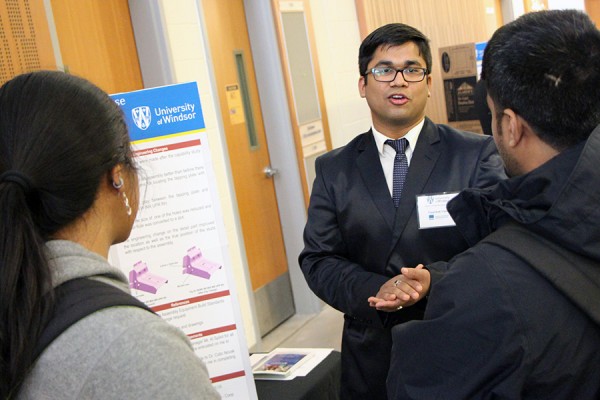
Students from the course-based Master of Mechanical Engineering - Automotive program bring valuable skills with them into the workplace, says Gordon Leslie.
Corporate engineering manager at automotive parts supplier the Narmco Group, he was in attendance Wednesday at the Centre for Engineering Innovation for poster presentations by students on their experiences with co-operative education placements.
The Narmco Group was one of those co-op employers, and Leslie said engineering grads make a good fit for the industry.
“We used to promote toolmakers but we now we’re looking at hiring people with an engineering background,” he said. “Engineering students are learning to tackle problems.”
He was impressed with contributions by Triyambak Tripathy, who completed a co-op work term but has continued in a part-time job with the firm while he completes his degree.
— Published on Mar 23rd, 2018
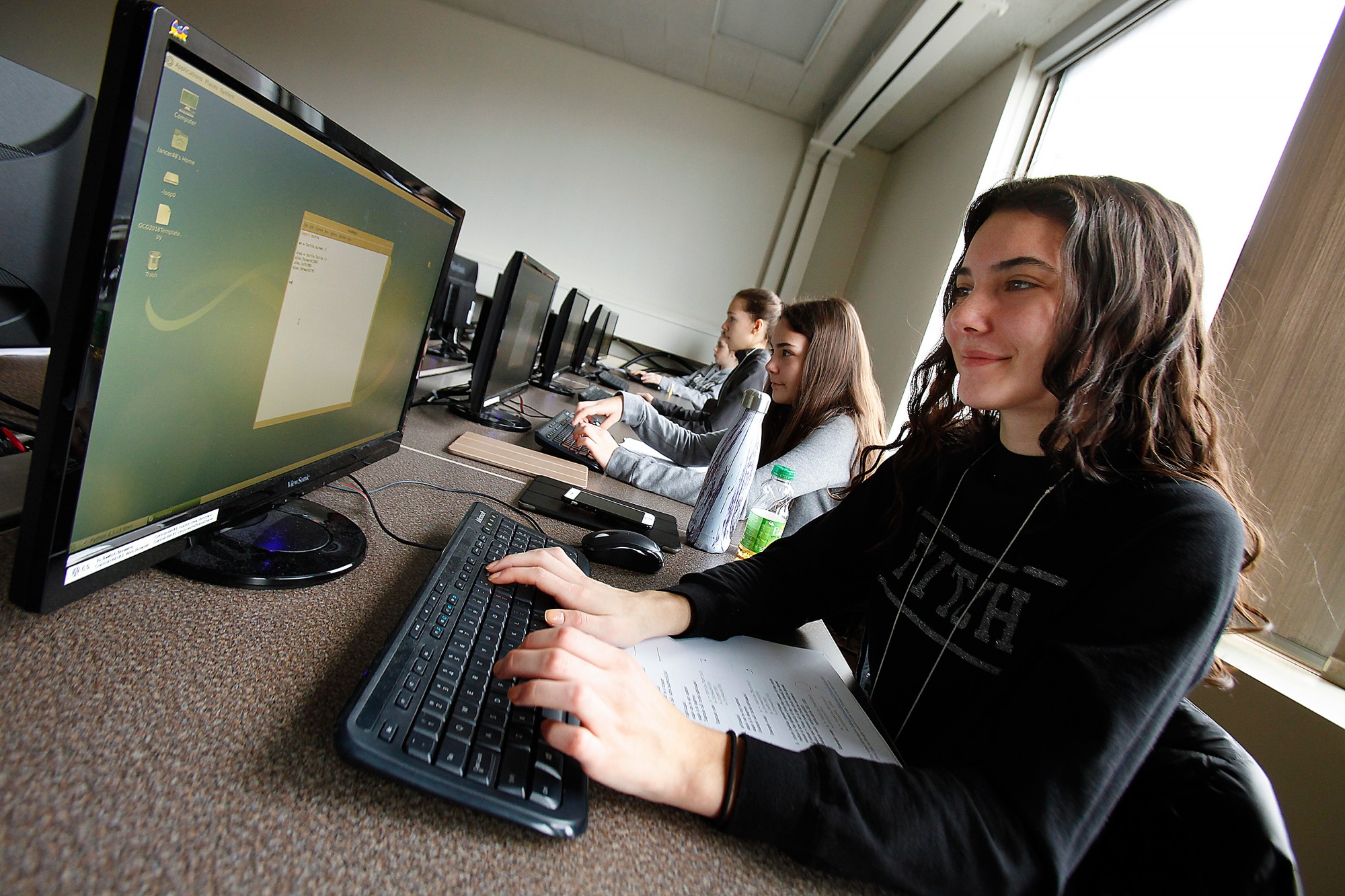
Spots went quickly for the University of Windsor’s first-ever Go CODE Girl workshop for girls in Grades 7-11.
A packed room of 40 participants learned the basics of Python, a computer programming language, Feb. 24 at a free workshop hosted by the university’s Faculty of Engineering and Faculty of Science.
“In Canada, we have a huge void and gap, not only in gender but also in skilled programmers,” says Dr. Ziad Kobti, professor and head of UWindsor’s School of Computer Science. “We have a very small number of females who pursue careers in computer science and yet the employment after a four-year degree is nearly 100 per cent. Thanks to local donors, we’ve established a female entrance scholarship to encourage women to apply to this exciting field.”
— Published on Jan 7th, 2021

A project to design and build hydraulic robotic arms powered by syringes taught a class of engineering students about the challenges of the profession.
Teams demonstrated their creations for the third-year course “Manufacturing Process Design,” Thursday in the Centre for Engineering Innovation. Each project had to incorporate several joints and be able to grasp and lift an object, operated by rubber-piston needle syringes.
Designs incorporated wood and metal, dowels and glue, 3D-printed and molded plastics, employing fluids as different as oil and water to operate crab-like claws.
— Published on Dec 8th, 2017
 A design competition for electrical engineering students brought their learning out of textbooks and into reality last week.
A design competition for electrical engineering students brought their learning out of textbooks and into reality last week.
“It was interesting to apply the theory we learned in class to predict circuit behaviour and help troubleshoot,” said Emilie Bondy, whose team took home first place for designing a Multiple Option Input Responsive Beverage Mixer.
Bondy and her teammates, Muntasir Alam and Tristen Michaud-Laughton, received $180 in UWindsor Campus Bookstore gift certificates.
More than 100 electrical engineering students from professor Mitra Mirhassani’s third-year class, “Electronics II,” competed. As part of a course requirement, students were tasked with designing a product under a $30 budget using an analog circuit and various signal processors.
— Published on Dec 7th, 2017

Dylan Verburg grew up on a farm, and his experience with small construction projects there has proven invaluable in his current challenge — deploying equipment in a drainage pond outside the Indian capital of New Delhi in an attempt to improve water quality.
“Two 50-foot sections of tubing were placed … with the intention of oxidizing the inlet stream before it mixes with the main body of the lake,” the civil engineering student writes in a blog on the Windsor Engineering website. “Six additional lines are placed strategically in the main body of the lake,” located along the Yamuna River in North Delhi.
He will measure the resulting changes, which aim to aerate the water, allowing beneficial bacteria to flourish and naturally restore the ecosystem.
— Published on Jun 8th, 2018

M.Eng student Bhavesh Lakhankiya completed an internship at Diageo Canada Inc. in Amherstburg, Ont..
— Published on Jan 4th, 2018
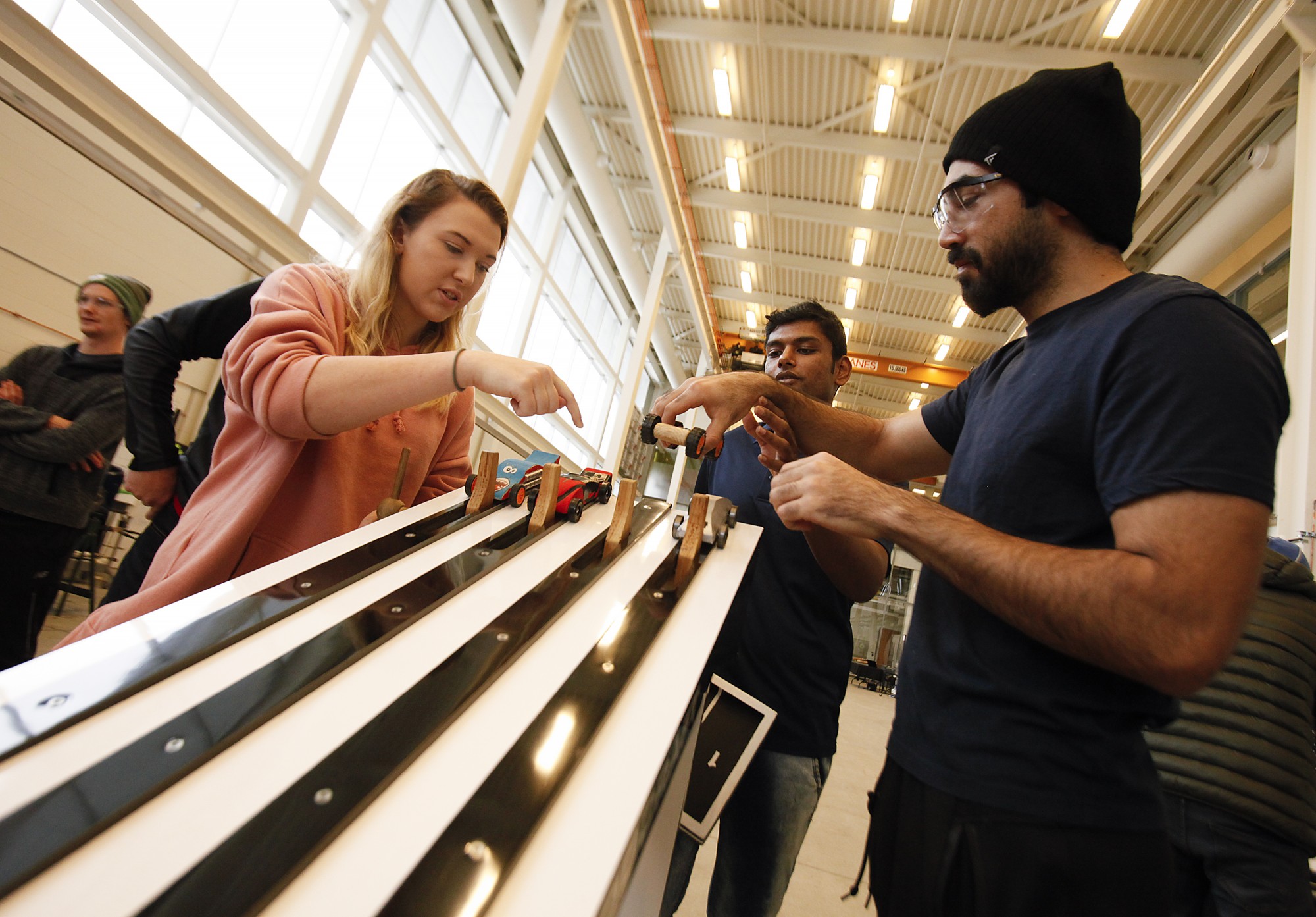
Mechanical engineering students took a break from their books Friday to compete against their peers in a gravity car competition. More than 50 students took part in the friendly competition hosted for the first time by the university’s Master of Engineering Auto Student Advisory Council.
“This competition is an opportunity for students to showcase their design skills and their knowledge of fundamental engineering concepts such as aerodynamics,” said Tracy Beemer, program administrator for the MEng Automotive program.
— Published on Jan 7th, 2021
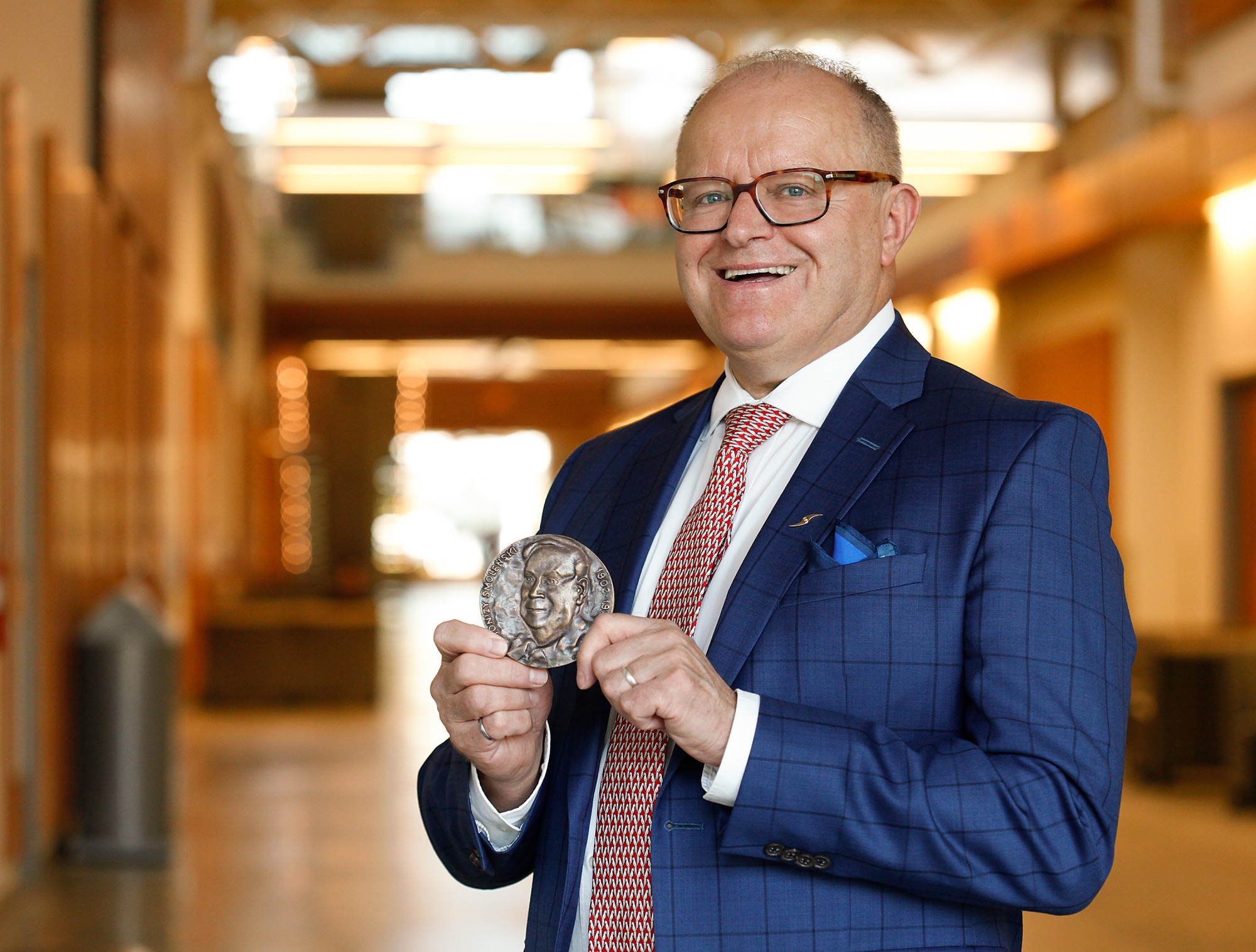
The head of the UWindsor Department of Mechanical, Automotive and Materials Engineering has been recognized by the Polish Academy of Sciences for his outstanding contributions towards advances in the knowledge of combustion process and technologies.
Andrzej Sobiesiak received the Dionizy Smoleński Medal September 5, during a joint meeting of the Polish Section of the Combustion Institute and XXIII International Symposium on Combustion Processes in Rynia near Warsaw, Poland after delivering a keynote lecture on “Internal Combustion Engines Fuelled with Solutions of Liquid and Gaseous Fuels.”
At the award ceremony, Dr. Sobiesiak was cited for his research on droplets combustion in microgravity, development and work on flameless combustion and ultra-low NOx burner, Homogeneous Charge Compression Ignition (HCCI) engines charged with fuels derived from biomass and unique split-cycle engine fuelled with natural gas.
— Published on Jan 7th, 2021






 A design competition for electrical engineering students brought their learning out of textbooks and into reality last week.
A design competition for electrical engineering students brought their learning out of textbooks and into reality last week.


